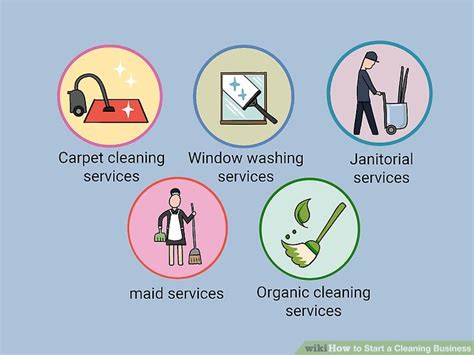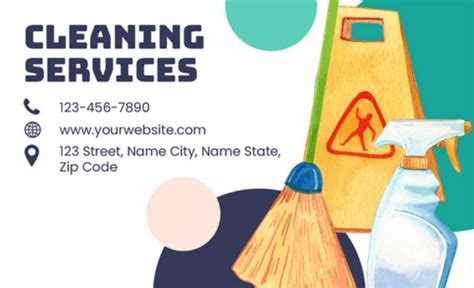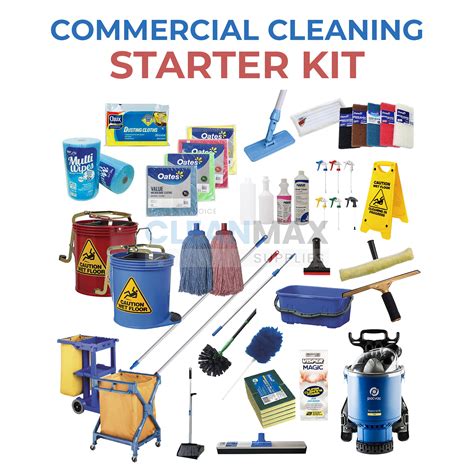What Do I Need For A Cleaning Business

Starting a cleaning business can be an exciting venture, offering flexibility and the opportunity to build a successful enterprise. However, it's essential to understand the specific requirements and considerations to ensure a smooth and efficient launch. This comprehensive guide will walk you through the key elements, from legal aspects to operational needs, providing you with the insights necessary to embark on your cleaning business journey with confidence.
Legal and Business Foundations

Establishing a solid legal and business foundation is crucial for any new venture. Here's what you need to know and do to get your cleaning business off on the right foot:
Business Structure
The first step is to decide on the legal structure of your business. Common options include sole proprietorship, partnership, limited liability company (LLC), or corporation. Each structure has tax and liability implications, so it's essential to choose the one that aligns with your business goals and risk tolerance. For instance, an LLC offers limited personal liability and pass-through taxation, making it a popular choice for small businesses.
Licenses and Permits
Depending on your location and the specific services you offer, you may need various licenses and permits. These can include a general business license, health department permits, and industry-specific certifications. For example, if you plan to offer specialty cleaning services like carpet cleaning or pest control, additional licenses and training may be required.
Insurance
Insurance is a critical aspect of running a cleaning business. General liability insurance is a must-have to protect your business against claims of property damage or personal injury. Additionally, consider workers' compensation insurance if you plan to hire employees. For businesses that use specialized equipment or work with hazardous materials, specific insurance policies may be necessary.
Registration and Taxes
Register your business with the appropriate state and local authorities to obtain a tax ID number. This step is essential for tax compliance and will enable you to open business bank accounts and apply for necessary licenses. As a business owner, you'll need to understand your tax obligations, including income tax, payroll tax (if you have employees), and sales tax (if applicable to your services). Staying on top of your tax responsibilities is crucial to avoid legal issues and penalties.
Business Plan
A well-thought-out business plan is a roadmap for the success of your cleaning business. It should outline your business goals, target market, marketing strategies, operational plans, and financial projections. A comprehensive business plan can also be crucial if you're seeking funding from investors or lenders. It demonstrates your understanding of the industry and your ability to execute a successful business strategy.
Equipment and Supplies

The right equipment and supplies are essential for delivering high-quality cleaning services. Here's a breakdown of what you'll need to get started:
Basic Cleaning Supplies
Start with the essentials: mops, buckets, sponges, microfiber cloths, vacuum cleaners, and a range of cleaning chemicals suitable for different surfaces. Ensure you have a good supply of cleaning solutions, such as all-purpose cleaners, glass cleaners, bathroom cleaners, and floor cleaners. It's also beneficial to have specialized products for tough stains and odors.
| Category | Recommended Supplies |
|---|---|
| General Cleaning | Mops, buckets, sponges, microfiber cloths, vacuum cleaners, cleaning chemicals |
| Specialty Cleaning | Steam cleaners, carpet shampooers, grout cleaners, air purifiers |
| Outdoor Cleaning | Pressure washers, leaf blowers, garden tools, outdoor cleaning chemicals |

Specialty Cleaning Equipment
If you plan to offer specialty cleaning services, you'll need additional equipment. For example, steam cleaners are great for deep cleaning carpets, upholstery, and tiles. Carpet shampooers can help remove tough stains, while grout cleaners are ideal for refreshing tiled areas. Air purifiers can be a valuable addition if you're focusing on indoor air quality.
Outdoor Cleaning Tools
For businesses that offer outdoor cleaning services, such as pressure washing or garden maintenance, you'll need a different set of tools. This can include pressure washers, leaf blowers, hedge trimmers, lawnmowers, and other garden equipment. Additionally, you'll need suitable cleaning chemicals and detergents for outdoor surfaces like patios, driveways, and decks.
Janitorial Supplies
If your cleaning business caters to commercial clients, consider investing in janitorial supplies. This can include trash cans, recycling bins, soap dispensers, paper towel dispensers, and other hygiene products. Having a well-stocked supply of these items ensures your clients' facilities remain clean and hygienic.
Operational Considerations
Running a successful cleaning business involves more than just having the right tools and supplies. Here are some critical operational aspects to consider:
Staffing and Training
Decide whether you'll be a sole operator or if you'll need to hire staff. If you plan to hire employees, consider your recruitment and training strategies. It's essential to find reliable and trustworthy individuals who are trained in proper cleaning techniques and safety procedures. Providing ongoing training and development opportunities can help ensure your team delivers high-quality services consistently.
Scheduling and Job Management
Implement efficient scheduling and job management systems to keep your business organized. This can involve using digital tools or software to manage customer bookings, track job progress, and ensure timely service delivery. Having a clear overview of your workload and customer expectations is crucial for maintaining a high level of customer satisfaction.
Marketing and Customer Acquisition
Develop a marketing strategy to promote your cleaning business and attract customers. This can include online marketing tactics such as search engine optimization (SEO), social media marketing, and content creation. Traditional marketing methods like flyers, door-to-door campaigns, and networking within your community can also be effective. Building a strong online presence and establishing yourself as a trusted local cleaner will help you stand out and attract new clients.
Customer Service and Feedback
Focus on delivering exceptional customer service to build a positive reputation. Respond promptly to customer inquiries and address any concerns or complaints professionally. Encourage customer feedback to understand your strengths and areas for improvement. Positive reviews and word-of-mouth recommendations can be powerful tools for growing your business.
Future Growth and Expansion
As your cleaning business gains traction, you may consider expansion strategies to further your success. Here are some potential avenues for growth:
Diversifying Services
Consider expanding your service offerings to cater to a broader range of customer needs. This could include adding specialty services like carpet cleaning, window washing, or post-construction cleaning. Diversifying your services can help you attract new clients and increase your revenue streams.
Franchise Opportunities
Explore franchise opportunities within the cleaning industry. Franchising can provide a proven business model, brand recognition, and support systems to help you grow your business more rapidly. However, it's essential to carefully research and select a reputable franchise that aligns with your goals and values.
Business Acquisitions
If you're looking to accelerate your growth, consider acquiring an existing cleaning business. This can provide an instant customer base, established reputation, and a head start on equipment and staffing. However, due diligence is crucial to ensure the business aligns with your vision and has the potential for continued success.
Online Presence and Digital Tools
Invest in building a strong online presence and utilizing digital tools to streamline your operations. This can include a user-friendly website, online booking systems, and digital payment options. Embracing technology can enhance your efficiency, improve customer satisfaction, and position your business for future growth.
Industry Trends and Innovations
Stay updated on industry trends and innovations to stay ahead of the competition. This can involve keeping an eye on new cleaning technologies, sustainable practices, and emerging market demands. Being adaptable and responsive to changes in the industry can help you maintain a competitive edge and offer the latest solutions to your customers.
Frequently Asked Questions

What are the key expenses associated with starting a cleaning business?
+
Starting a cleaning business involves various expenses, including initial investments in equipment and supplies, insurance costs, licensing and permit fees, marketing and advertising expenses, and potentially hiring and training staff. Additionally, ongoing costs like utility bills, vehicle maintenance, and replenishing cleaning supplies should be considered.
How can I stand out in a competitive cleaning business market?
+
To stand out, focus on delivering exceptional customer service, maintaining high standards of cleanliness, and offering specialized services that cater to specific client needs. Building a strong online presence, utilizing digital marketing strategies, and consistently seeking feedback to improve your services can also help you differentiate yourself from competitors.
What are some common challenges faced by cleaning business owners, and how can they be overcome?
+
Common challenges include finding and retaining reliable staff, managing customer expectations, and staying competitive in a crowded market. To overcome these challenges, consider offering comprehensive training and development opportunities for your staff, actively communicating with customers to manage their expectations, and continuously adapting your business strategies to stay relevant and competitive.



